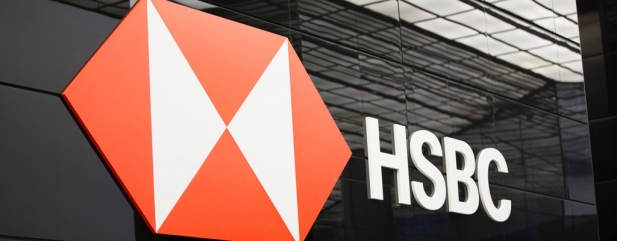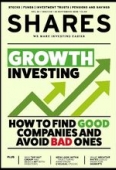Archived article
Please note that tax, investment, pension and ISA rules can change and the information and any views contained in this article may now be inaccurate.
Why bank stocks are getting bashed (again)

Fresh allegations from the International Consortium of Investigative Journalists (ICIJ) about money laundering at HSBC (HSBA) and Standard Chartered (STAN), among other leading global banks, may pertain to wrong-doing which is already covered by previously-paid regulatory fines, according to the lenders themselves.
But even if that is the case, the story gives investors another reason to wonder whether banks stocks are worth the bother, given their complex business models, the danger that loan books are harbouring a lot of debt that might be about to go sour if the economy turns down again and the threat posed by central banks’ monetary policy.
This is not how central banks see it. They argue that cutting interest rates and quantitative easing (QE) lower borrowing costs, creating demand for loans and credit that keep economies going.
But equity investors are clearly not convinced. Within the FTSE 350, banks are the third-worst performing sector over the last 12 months (ahead of only Oil Equipment & Services and Oil & Gas Producers) and the second-worst over ten years (beating just Oil Equipment).
This is a serious matter for holders of the Big Five FTSE 100 banks’ shares and those investors who get access to UK equities via passive, tracker funds – those same five banks represent 7% of the FTSE 100’s market capitalisation and, according to consensus analysts’ forecasts, are set to generate 12% of the index’s 2021 profits and 14% of its dividends.
Mangled margins
The problem, at least in the near term, is that low base rates drag down the interest rates that banks can charge on loans. Quantitative easing is designed to flatten out borrowing costs, too, so that credit spreads (the premium in interest rate paid by a company to a government) are also relatively narrow.
The net result is that the net interest margin on banks’ loan books is under fierce pressure, seriously undermining banks’ profitability and their ability to earn decent returns on equity.
An average decline in the net interest margin across the Big Five FTSE 100 banks of 52 basis points (0.52 percentage points) since Q1 2017 might not sound a lot. But that represents a 22% drop in the lending margin and on their current aggregate loan books of £2.2 trillion. That is the equivalent of £10 billion in interest a year – profit which could have been used to make fresh loans, perhaps, buffer balance sheets or even pay dividends to shareholders.
Some investors could be forgiven that the Bank of England’s monetary medicine is making banks feel worse, not better.
Global trend
In Europe, the European Central Bank has been tinkering with zero interest rates (and negative deposit rates) for some time, to no great effect so far as its 2% inflation target is concerned, but with deleterious consequences for banks’ profits and the returns on offer to their equity holders.
Unfortunately, investors in banks had already been warned of what might come their way. After all, the Bank of Japan has been fighting the effects of the bursting of a debt-fuelled stock market and property bubble since 1990, some 17 years before a similar fate befell the UK, Europe and America.
The effects of three decades of QE and ZIRP upon Japanese banking stocks are all too clear to see in the miserable share price peformance, and the Bank of Japan’s record in promoting consistent economic growth and 2% inflation, in line with its target, is spotty at best.
Only US banking stocks have shown any real signs of life in the past few years but the pandemic, a recession and reversal of Fed policy from tightening to easing appear to have taken care of that in 2020.
American dream
The disconnect between the market cap weighting and the estimated profit and dividend contribution means that either the FTSE 100 banks are too cheap or market doesn’t believe the analysts’ forecasts for 2021.
The experience of America’s investors suggest that banks’ profits and share prices need rising bond yields, as that may help lending margins, so that may be the catalyst that contrarian value seekers crave, although what it could do to their loan books when it comes to sour loans and impairment charges is another matter.
Economic growth and (some) inflation would be potential triggers for bond yields to rise. Central banks continue to strive for both and are now calling for further fiscal stimulus to help.
Until governments sanction more spending and higher deficits, banking stocks may continue to recoil from central bank policy statements which promise low interest rates for longer or even the dreaded prospect of negative interest rates, to the detriment of individual bank stocks and perhaps the wider FTSE 100 index.
Important information:
These articles are provided by Shares magazine which is published by AJ Bell Media, a part of AJ Bell. Shares is not written by AJ Bell.
Shares is provided for your general information and use and is not a personal recommendation to invest. It is not intended to be relied upon by you in making or not making any investment decisions. The investments referred to in these articles will not be suitable for all investors. If in doubt please seek appropriate independent financial advice.
Investors acting on the information in these articles do so at their own risk and AJ Bell Media and its staff do not accept liability for losses suffered by investors as a result of their investment decisions.

 magazine
magazine












